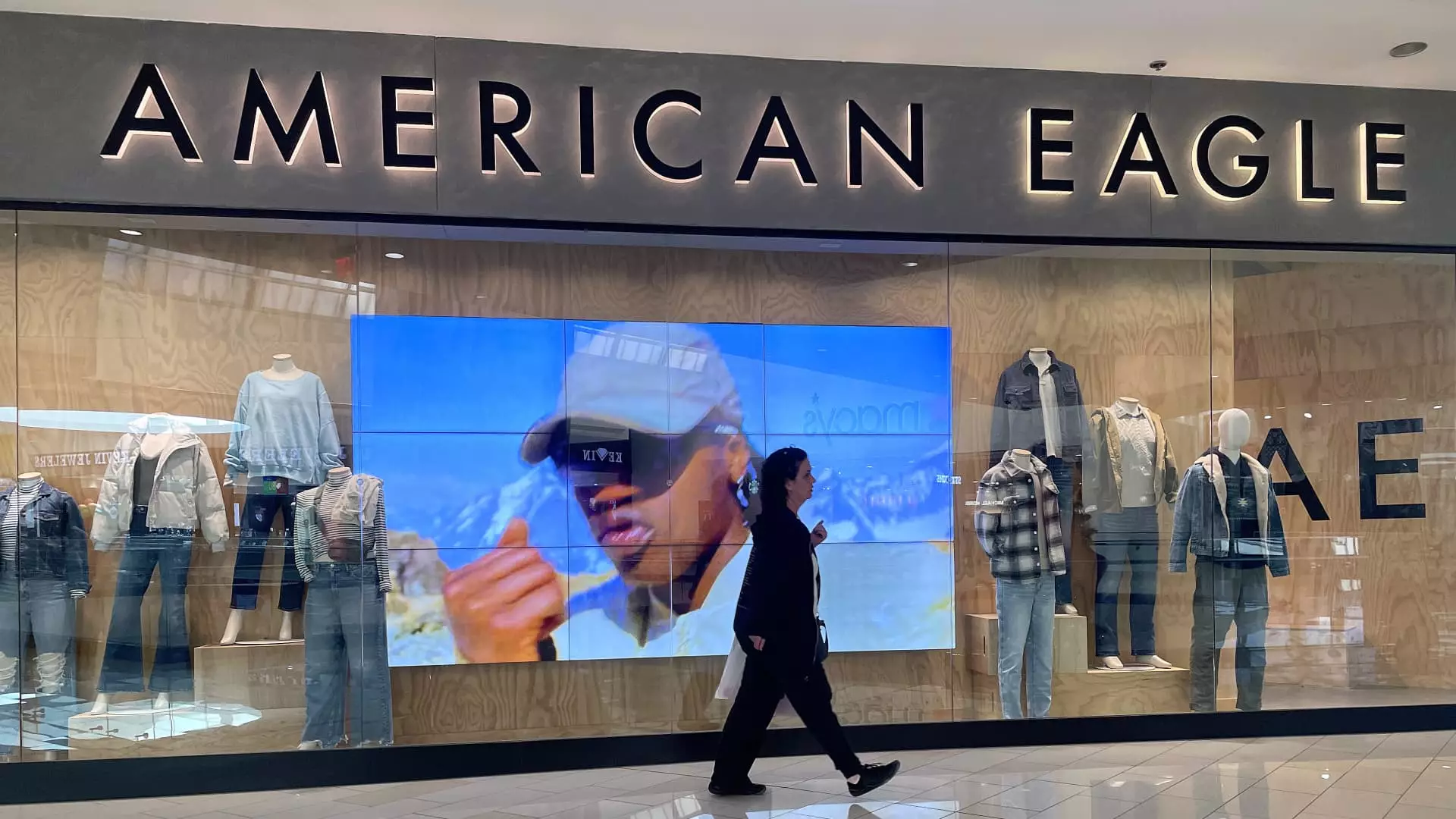In an increasingly competitive retail environment, the line between trademark infringement and brand management has become alarmingly blurred. American Eagle Outfitters, a well-known American retail brand, has initiated a legal confrontation with one of the world’s largest e-commerce platforms, Amazon. The crux of the dispute revolves around American Eagle’s Aerie clothing line, which specializes in products like yoga pants and loungewear. The lawsuit highlights how Amazon has allegedly misused Aerie’s branding, leading to confusion among consumers and creating a marketplace for counterfeit or inferior goods.
This lawsuit, which was filed in the U.S. District Court for the Southern District of New York, accuses Amazon of “flagrant, unauthorized use” of Aerie’s trademarks. American Eagle asserts that by misrepresenting the Aerie brand in search results, Amazon is misleading its customers and driving traffic toward competing merchandise that undercuts the genuine Aerie products. The case exemplifies the broader struggle that established brands face in an era dominated by online marketplaces where the lines between authentic and counterfeit goods are increasingly difficult to distinguish.
One of the most concerning aspects of this lawsuit is the allegation that Amazon’s search results for Aerie products lead consumers not to the official Aerie offerings, but to look-alike items often labeled with misspellings of the Aerie brand. Consumers looking for authentic yoga pants or loungewear could, as a result, be unwittingly directed to inferior products masquerading as Aerie offerings. American Eagle argues that these misleading tactics not only confuse customers but also tarnish the brand’s reputation, making it imperative for the retailer to protect its intellectual property rigorously.
American Eagle claims that consumers searching for Aerie items on search engines encounter Amazon’s links, which leads to a façade of authentic Aerie products, but instead directs shoppers to pages filled with knock-offs. The lawsuit asserts that these actions are designed to create an illusion of legitimacy, ultimately resulting in brand erosion and financial losses for American Eagle. The stakes are stark; with Aerie’s ongoing efforts to carve out its own unique brand identity, the implications of such misrepresentation could profoundly affect customer loyalty and revenue.
American Eagle is not alone in raising alarms about marketplace conduct. Numerous companies have recently voiced concerns regarding Amazon’s handling of counterfeit goods. The litigation brought forth by Birkenstock and Daimler AG serves as a grim reminder of the perils that brands face when their trademarks are violated on such massive platforms. These incidents illustrate a troubling pattern where established brands are compelled to take legal measures to safeguard their identities.
Moreover, Amazon has faced criticism for its handling of third-party seller regulations, which allow a significant number of non-verified vendors to sell products on its site. The issue magnifies the complexities of managing intellectual property rights in an online ecosystem where a multitude of sellers offers vast inventories—frequently with items that lack the quality and authenticity of the original products. In response to these mounting pressures, Amazon has pledged to intensify its scrutiny of counterfeit goods, yet this has often proved to be a Sisyphean task given the overwhelming volume of listings on their marketplace.
As American Eagle proceeds with its lawsuit, the company has expressed its desire for an injunction to prevent Amazon from further exploiting its intellectual property, as well as financial compensation for the alleged infringement. This case is not merely about monetary damages; it represents a broader struggle for control over brand integrity in a rapidly evolving retail landscape.
The outcome of this lawsuit could have lasting implications for e-commerce practices and the way brands defend their identities online. As consumer shopping continues to migrate online, the need for robust measures against trademark infringement will be more critical than ever. Established brands are likely to take a page from American Eagle’s playbook, initiating legal actions to uphold their brand identities and peace of mind in an increasingly complex digital marketplace.
This legal dispute is emblematic of the challenges faced by traditional retailers navigating the uncharted waters of online commerce, underscoring the necessity for vigilance in protecting brand integrity against the tide of counterfeit challenges.


Leave a Reply